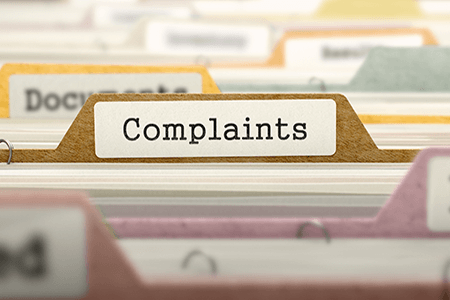How to prepare your business for a recession
By MAS Team | 26 January 2024
Recessions are nothing new. Over the years, there have been plenty of instances where businesses across the globe have been affected by such an event. Many companies have dealt with a recession in New Zealand before, or at least understand its implications. But, some people, especially newer business owners, may not understand the ins and outs – including how to prepare for one. This guide is for you.
Hearing about an impending global recession in the news hardly instils confidence. In fact, it can be quite overwhelming and frightening. Thankfully, there are ways you can prepare to be as resilient as possible. We’re about to answer what happens in a recession, the role business insurance may have to play, and practical things you can do to be in the best shape possible. Here’s what we’ll cover:

Simply put, a recession is an extended period of economic decline. There are common characteristics of an economic recession, including:
Top tip: GDP (gross domestic product) is a way to measure the value of goods and services over a period of time. The measurement aims to get an idea of how much money is made from a country's production. This helps to indicate how big an economy is and how it’s doing.
There can be many causes of a recession. In many cases, there are several causes at once. Some common factors include:
A recession also shouldn’t be confused with a depression. When comparing a recession vs a depression, it’s important to know that a depression is a more severe economic downturn that may last over 3 years, or a decline in GDP of over 10%. On the other hand, the recession caused by the financial crisis in 2007 lasted about a year and a half in New Zealand.
As you’d expect, a New Zealand recession is generally bad news. As consumers feel the pinch themselves, they’re less likely to spend their hard-earned cash. Then, it’s a domino effect as business owners see less revenue, which can lead to other problems like layoffs. Other common problems businesses face during an economic recession may be supply chain issues.
On a positive note, some people may find business opportunities during a recession, similar to how certain online retailers flourished during the COVID-19 pandemic. However, it’s generally difficult for a business to hit its goals or expand during a recession.
So, what is a recession, and how can you prepare? It’s hard to predict exactly what a recession will bring. But, there are ways you can prepare to minimise the financial impact as much as possible. Some of these tips you may even be aware of already.
When asking how to prepare for a recession, one of the things you want to do is reduce business costs. Taking a step back and looking at how you can streamline your business processes and operations is a good idea. You can do this in many ways, depending on the type of business. Some examples may include:
Top tip: One way to promote team productivity is to boost general morale. To do this, try to make your company as great a place to work as possible. Free pizzas once a month on a Friday probably won’t cut the mustard!

This may be easier said than done, but to safeguard your income as much as possible you may wish to diversify your revenue. In turn, this can help your business to be as resilient as possible. Reducing reliance on one single type of customer or market segment can mean that if a segment is declining, you have other options to fall back on. Some ways you can look to diversify include:
It may seem like a no-brainer, but the bigger the buffer, the better. That way, you have a better safety net to weather the storm of a global recession. Having a financial cushion may help compensate for any losses during the downturn. Consider how long a recession in New Zealand could be and how much money you may need to keep in operation. Generally, 3 to 6 months' worth of expenses is recommended.
There are plenty of uncertainties when running a business, especially during a recession. Although it may seem difficult to plan for, considering what would happen and how you’d react to different circumstances can be a good idea. You probably financially forecast already. So, you want to take that one step further and consider what may happen in extreme instances.
To scenario plan, look back at examples like the great recession (or global financial crisis as it was often referred to in New Zealand). See what happened then and learn from how businesses coped. In the event of an economic downturn, could you plan to restructure? Sell-off assets? There are many scenarios to explore as options. Anticipate likely impacts of recession and be as prepared as possible for anything.
Depending on the type of business and industry, suppliers are a big consideration during a recession. During an economic downturn, you want to have as strong a relationship with suppliers and creditors as possible. That way, there may be flexible payment options or agreements to explore that benefit both parties when times are tough. After all, it’s essential to meet supply chain and financial obligations.
Money makes the world go around, especially during a recession. When anticipating a downturn, one of the first things you should do is take a good look at your budgets with your accountant. This includes staff costs, revenue forecasts and any other outgoings. Having a clear and holistic view of your budget means you can make small adjustments that might just make a big difference.
When people wonder what happens during a recession, it’s fair to assume that not many businesses experience growth. With this in mind, it can be a case of damage limitation for many. Instead of focusing on growing your business, focus on retaining what you currently have. When customers are tightening their belts, they may be less focused on changing suppliers. This means the chances of getting a new customer may be slim.
If a customer experiences fantastic service or is looked after well, they’re far more likely to be loyal and continue choosing you over your competitors. Put your time into customer service and add value. That way, your customers are far more likely to stick around when times are tough. Try to explore ideas that perhaps aren’t financially motivated.

Having the correct cover when times are tough is important, and cancelling covers when times are tough can be devastating if you suffer a loss and are not protected. There are many ways business insurance can be structured to ensure you still have cover for those events that will financially cripple your business if you do not have the cover. You may be able to structure cover so that you carry some of the smaller risks yourself during tough financial times, thereby reducing the overall cost of your cover but the retain the critical business continuity covers.
There are many providers of business insurance out there, including MAS business risk insurance, who can assist with a review of the following covers:
Business insurance can be complex so it is a good idea to reach out and talk with a business insurance expert for advice. That way, you have the right level of cover that’s within budget.
MAS only provides advice on products offered by its subsidiary companies. Advice is provided by MAS or its nominated representatives (who are all MAS employees). Our financial advice disclosure statement is available on our website or by calling 0800 800 627.

11 April 2019
Working in a small, close-knit workplace where everyone gets along, it can be unimaginable that there would be any interpersonal issues.

20 May 2021
Recently graduated and ready to take that big first step into employment? Let's take a look at how to land your first job.

10 May 2021
Even when patients and doctors are speaking the same language, medical appointments can be stressful. But for Deaf patients, accessing health care can be even more daunting, and miscommunications can have serious health consequences.